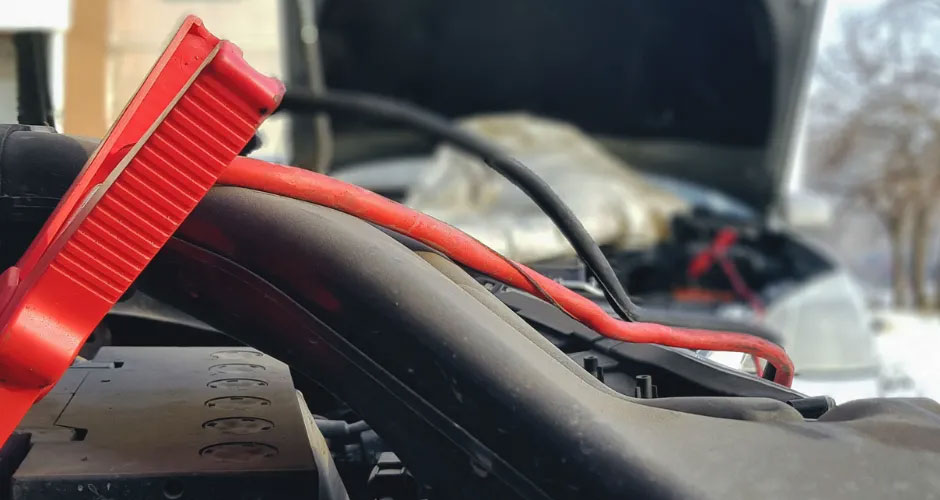
For drivers in Nova Scotia dealing with icy winds and snow-covered roads, there's no ignoring the importance of healthy car batteries. As the temperature drops, the demand on your vehicle's battery increases, and the last thing you want is to be stranded in the cold because of a dead battery.
Understanding proper battery maintenance in cold weather, especially for owners of pre-owned vehicles, is not just about staying safe; it's about protecting your investment and guaranteeing a smooth driving experience.
Here are our top 5 winter car battery maintenance tips that every Nova Scotia winter driver should follow.
Tip 1: Keep Your Car Battery Charged All Winter
Your car's battery, in many ways, is the heart of your vehicle, especially in the winter. Low temperatures slow the chemical reactions that generate electricity, meaning that your engine requires more current from the battery to start.
Regular Checks and Charges
Regularly check the battery charge levels using a voltmeter. If it's consistently below 12.4 volts, consider using a battery maintainer to keep it charged. Smart chargers are excellent tools for keeping your battery topped up without overcharging.
Pay Attention to Battery Health
Remember, winter makes an already weak battery even weaker, so a smart investment in November could save a lot of headaches in February. After about 3-5 years of a battery's lifespan, a replacement might be your best option.
Tip 2: Keep Your Battery Terminals Clean
Corrosion on terminals can lead to poor connectivity and even battery drain. But keeping them clean is a simple DIY task that pays dividends.
Clean Your Terminals for a Healthy Battery
Create a mixture of baking soda and water, apply it to the battery terminals, and scrub with a wire brush. Remember to wear gloves and goggles and ensure the mixture doesn't infiltrate the battery.
Use Terminal Protectors
After they're clean, apply a terminal protector spray or petroleum jelly to keep them shining for longer.
Tip 3: Insulate Your Car Battery
Insulating your car battery is an important step in vehicle maintenance that could prevent it from losing its charge in frigid temperatures.
Battery Blankets
Battery blankets are like electric blankets for car batteries, keeping the temperature stable. They're easy to install and can extend your battery life significantly.
Installing Hood Insulation
Consider adding a thin layer of insulation to your hood, which helps to keep the engine bay warmer and reduces the strain on your battery.
Tip 4: Limit Battery Power Usage in Cold Weather
In winter, try to limit the use of high-draw electrical components when the engine's not running to conserve battery power.
Reduce Power Loads
Avoid extended idling and switch off accessories like seat warmers, cabin lights, and entertainment systems in cold temperatures when you don't need them to keep your car running smoothly.
Heated Visor Over Rear Defroster
If you can, use a heated visor for the front windscreen instead of the rear window defroster, which can be a significant draw on the battery.
Tip 5: Regularly Test Your Battery
When was the last time your battery was tested? If the answer isn’t "this winter," schedule a test as soon as possible.
DIY or Professional
While some auto parts stores offer battery tests and it's possible to check your battery's charge at home with a load tester, these methods may not always provide accurate readings, especially in colder weather.
For reliable results, turn to the experts at Race Auto Group. With our extensive knowledge and experience in vehicle repairs and maintenance, our team will ensure your battery is in peak condition and ready for whatever the Nova Scotia winter can throw at it!
Replace When In Doubt
Battery health is not something you want to gamble on. If your test indicates a weak battery, replace it with a new battery to avoid a winter emergency.
Put Our Winter Car Battery Tips into Action!
Winter car battery maintenance is the best way to care for one of your vehicle's most essential components when it is at its most vulnerable.
By keeping your batteries charged, clean, and insulated, and by limiting unnecessary power usage, you're actively ensuring a reliable driving experience in even the harshest winter conditions
For Nova Scotians driving out into the winter, these five tips will safeguard your battery and your safety. Contact the team at Race Auto Group today and drive away with peace of mind! Stay charged, stay safe, and embrace the season with confidence.
Frequently Asked Questions
As we wrap up this informative blog post, let's tackle some frequently asked questions about car battery maintenance during the winter months.
Is it bad to leave your battery in the cold?
Yes, cold temperatures can negatively impact your car battery. The colder it gets, the harder your battery has to work to start the car. If your battery is already weak, it may not be able to handle the extra strain, potentially leaving you stranded. It's advisable to have your battery tested by professionals like Race Auto Group before the winter season begins.
How do I stop my car battery from draining in the winter?
Preventing your car battery from draining in cold weather involves a combination of regular maintenance and strategic use. It's crucial to have your battery checked regularly by professionals, like those at Race Auto Group, who can ensure it's in optimal health and prepared for the weather.
If you have access to a garage or another warm place, make it a point to park your vehicle there, as it protects the battery from the cold. Additionally, try to limit short rides, which prevent your car’s battery from fully charging, thereby extending its life.
How can I improve my battery life in cold weather?
To optimize your battery life during the cold season, focus on diligent upkeep and use your vehicle mindfully. Keeping the terminals clean and corrosion-free is a must since corrosion can inhibit the battery from charging or even starting your car. If your vehicle isn't going to be in use for a while, consider using a battery maintainer or a trickle charger to keep it charged. Lastly, refrain from using your car's electronics when the engine is off to avoid unnecessarily draining the battery's power.

